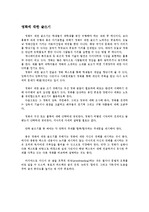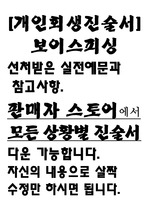대한민국의 난민정책에 대한 교회의 선교실천적 접근 가능성 고찰
* 본 문서는 배포용으로 복사 및 편집이 불가합니다.
서지정보
ㆍ발행기관 : 한국선교신학회
ㆍ수록지정보 : 선교신학 / 43권
ㆍ저자명 : 김광성
ㆍ저자명 : 김광성
목차
Ⅰ. 들어가는 글Ⅱ. 국제사회의 난민보호 현황
Ⅲ. 대한민국의 난민정책
Ⅳ. 난민정책에 대한 교회의 선교실천적 접근가능성
Ⅴ. 나가는 글
주제어
Abstract
참고 문헌
한국어 초록
국제이주는 현대사회의 중요한 특징 중의 하나로서 전 지구적인 현상이 되었다. 세계화의 영향으로 초국가적 네트워크가 출현하고 교통과 통신수단이 급격히 발달하면서 이주노동자와 학생, 난민을 포함한 다양한 이주자의 이동이 끊임없이 일어나고 있다. 국제이주가 보편화되면서 교회 공동체는 세계 곳곳에서 다문화 사역, 이주민 선교, 디아스포라 선교 등 다양한 영역에서 사역을 실천하고 있다. 이주에 대한 연구의 중요성이 날로 증대되면서 선교학계도 이주에 대한 연구를 활발하게 진행하고 있다.최근 이주의 형태 가운데 난민은 소수자 영역 또는 긴급한 관심과 돌봄이 필요한 대상으로 등장하였다. 그러나 난민문제는 국가안보, 책무 수행에 소요되는 경제적 비용 등의 이유로 정부와 교회 모두가 쉽게 접근하기 어렵다는 평가가 있다. 본고는 유럽에서 촉발된 난민사 역의 선교적 중요성을 대한민국의 상황에서 살펴보고, 이를 대한민국 교회의 사역으로 발전시킬 수 있는 방향성을 찾아보는 데 그 연구 목적이 있다. 일반적으로 난민은 본국에서 박해를 피해 언어, 문화 등이 전혀 다른 국가에서 생활할 수밖에 없는 매우 취약한(vulnerable) 상황에 놓인 이들이다. 난민은 자국이나 타국과의 권력구조에서 개인의 권한이 나 국가의 권력이 부족하거나 결여된 상황에 놓인 이들이다. 따라서 난민은 특별한 프로그램을 통한 보호를 필요로 한다. 국제사회는 난민 문제를 국제기구의 설립과 국제법 제정을 통해 해결하려고 노력해 왔다. 그러나 국제사회의 난민문제에 대한 접근은 난민의 기본적인 인권문제의 해결보다 국가 간의 정치적, 경제적 문제를 우선으로 하는 한계를 보인다. 국제사회에서 난민은 국제법의 정의와 인정기준에 따라 그들에 대한 국제적 지원이 달라진다. 국제사회에서는 난민은 제네바협약의 규정에 따라 난민 지위를 인정받은 사람이며, 이들은 국제난민협약이 정한 기준에 따라 지원과 보호를 받는다. 이런 접근은 국제사회의 질서 유지를 위한 최소한의 조치에 불과하다.
대한민국 정부는 난민인정 기준이 지나치게 엄격하다는 국내외의 비판을 받아왔다. 대한민국은 다른 국가들에 비하여 상대적으로 극히 적은 수의 난민을 수용하여 왔음도 지적된다. 그러나 대한민국의 난민 문제에 대한 접근이 달라지고 있다. 특히 2014년까지 UNHCR 의장국 이었던 대한민국 정부의 난민정책이 급격하게 바뀌고 있다. 2013년에 는 아시아 최초로 난민법을 제정하고, 2015년에는 가장 적극적인 난민정책인 재정착희망난민제도를 실시하였다. 그러나 단일민족이라 는 문화적 배경, 난민에 대한 인식 부족 등의 이유로 대한민국에 실제로 정착한 난민의 수는 극소수에 불과하다는 평가도 있다. 난민을 수용하 는 국가가 국제사회와의 공조를 위해 국내법적 근거를 확보하고 적극적 인 난민수용제도를 시행한다 하더라도 난민문제에 대한 국가적 인식의 변화가 뒤따르지 않으면 국제사회가 난민문제에 대해 공동의 책무를 감당해야 한다는 인도주의적 신념과는 거리가 먼 상황이 될 수 있음을 의미한다.
이주민 사역 가운데 특별한 영역인 난민사역은 사회복지사역과 마찬가지로 국가주도적인 사역이다. 따라서 대한민국 교회의 난민사역은 국제사회의 난민문제 해결을 위한 현상적 노력이나 대한민국 정부의 난민정책에 대한 이해를 바탕으로 해야 한다. 대한민국 교회가 난민문 제에 대해 응답해야 하는 것은 시대적 요청일 뿐 아니라 선교실천적 요청이기도 하다. 대한민국 교회는 난민문제 해결에 적극적으로 참여해 야 한다. 난민문제 해결을 위한 한국교회의 사명은 국제사회와 국가의 가시적 난민비호에 적극 동참하면서 동시에 난민들의 비가시적 상처를 평화로 화해와 회복으로, 그리고 사랑으로 품는 것이다.
영어 초록
International migration is an important characteristic of the modern society. International migration has arose to be a global phenomenon. Globalization has influenced the rise of trans-national networks, and exponential developments in transportation and communication has provided a continuous movement of various migrants such as migrant workers, international students and refugees. With the rise of the global phenomenon of international migration, the church community in every part of the world is participating in ministries in the area of multi-cultural ministries, migrant mission, diaspora mission and others. With the rising importance of research regarding migration, the field of missiology is also actively engaging in research regarding migration.Among recent migrant developments, refugees have grown to be a minority group or a target of needing urgent concern and care. However, due to various issues such as national security and economic impact of guaranteeing the rights of refugees, it is understood that governments and churches will have difficulty in engaging the refugees. The purpose of this paper is to evaluate the refugee ministry that exploded in Europe from the context of South Korea and to address the means of developing a ministry within the church in Korea.
Generally, refugees live in a very vulnerable circumstance. They are identified as those who fled their home country due to persecution and are forced to live in a country that speaks a different language with completely different culture. Refugees live in a country, whether home or abroad, that lack or do not guarantee refugee rights through government regulations. As a result, refugees require protection through special regulations. The international community has attempted to resolve the issue of refugees through establishing international agencies and international regulations. However, the international community’s attempts in resolving the issue of refugees has prioritized political and economic issues over against the basic human rights of the refugees. The international aid for refugees depends on the definition of the international regulations and human rights. Internationally, refugees are defined according to the Geneva Convention on Refugees and are guaranteed aid and protection according to the regulations set forth in the convention. However, this only amounts to minimum efforts in an attempt to maintain international order.
The Korean government’s policy on refugees has been criticized, both domestically and internationally, for being too restrictive. It has been indicated that South Korea has accepted extremely low numbers of refugees in comparison to other nations. However, Korea’s response to refugee crisis is changing. Especially after South Korea served as the president of the Executive Committee of UNHCR in 2014, Korean government’s policy towards refugees are rapidly changing. In 2013, Korea was the first nation in Asia to pass a law regarding refugees, and in 2015 placed into practice Refugee Resettlement Hope Regulation, one of the most progressive refugee policy. However, it is argued that in reality only a small number of refugees are settled in Korea due to Korea’s mono-cultural background and lack of awareness refugee issues. This implies that even if a country that accepts refugees establishes national laws and practices progressive refugee regulations in accordance with the international society, unless that country’s citizen’s understanding of refugees changes accordingly, a tremendous gap may exist in the humanistic belief that the international society has a communal responsibility in responding to the refugee crisis.
As a particular aspect of a broader migrant ministry, refugee ministry− much like a social welfare program−is a country-specific ministry. Therefore, Korean church’s refugee ministry must be based on the understanding of the society’s current attempts at resolving refugee crisis and the Korean government’s policy towards it. Not only this era but also missional praxis demands the church in South Korea to respond to the refugee crisis. The church in Korea must proactively participate in resolving the current refugee crisis. The mission of the church in Korea in resolving the refugee crisis is to proactively participate with the international community and her country in their visible refugee asylum and at the same time embracing the invisible wounds of the refugees with peace, reconciliation and recovery and love.



























